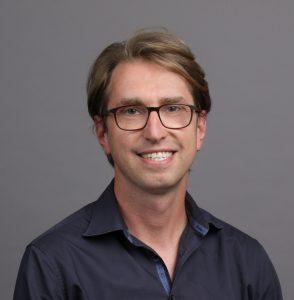 Dr. Dr. Roland Schelker received his M.D. from the University of Cluj-Napoca in 2009. He has been part of the University Hospital Regensburg since 2009, first as a Resident Physician in Internal Medicine, Haematology, and Oncology, and since 2018 as a Specialist Physician in the same department. Between 2019 and 2021, he was awarded a DFG-funded research fellowship at the National Institutes of Health (NIH) in Bethesda, USA, where he trained in the laboratories of Luca Gattinoni (NCI) and Warren Leonard (NHLBI).
Dr. Dr. Roland Schelker received his M.D. from the University of Cluj-Napoca in 2009. He has been part of the University Hospital Regensburg since 2009, first as a Resident Physician in Internal Medicine, Haematology, and Oncology, and since 2018 as a Specialist Physician in the same department. Between 2019 and 2021, he was awarded a DFG-funded research fellowship at the National Institutes of Health (NIH) in Bethesda, USA, where he trained in the laboratories of Luca Gattinoni (NCI) and Warren Leonard (NHLBI).
In 2021, Dr. Dr. Schelker joined the Division of Functional Immune Cell Modulation at the Leibniz Institute for Immunotherapy (LIT), where he now leads the Translation Group “T-Cell Fitness.” In 2025, he earned his second doctoral degree (Ph.D.) with summa cum laude distinction. His research focuses on transcriptional co-regulators in CD8⁺ T-cell stemness, memory formation, and anti-tumour immunity, with the overarching goal of translating fundamental insights into transformative immunotherapies.
Could you briefly share your journey into immunotherapy research?
Absolutely. I vividly remember the moment that shaped my entry into immunotherapy. I was a senior resident in the Department of Haematology/Oncology at the University Hospital Regensburg, deeply immersed in patient care, when a pharmaceutical representative from Bristol-Myers Squibb walked into my office. I assumed it was another routine promotion for a new chemotherapy.
Instead, I was invited to a presentation and dinner event in Munich. It sounded like a pleasant evening, but I didn’t anticipate how transformative it would be. The presentation introduced checkpoint inhibition—a new and promising pillar of antitumour immunity. It was clear to me, even then, that this was a turning point in cancer therapy. From that moment, I was determined to redirect my scientific career toward this field.
Shortly after, I took the leap into T cell engineering—going beyond modulating immune checkpoints to reprogramming the immune cells themselves. This journey led me to the National Cancer Institute, where I was part of an environment shaped by pioneers like Steven Rosenberg, Nick Restifo, and Luca Gattinoni. I eventually joined Luca’s lab, focusing on strategies to retain T cells in a stem-like, memory-rich state—a cornerstone for durable and effective adoptive T cell therapy.
What are the key innovations in T cell engineering that your lab is currently working on?
At the T-Cell Fitness group, we are investigating the transcriptional mechanisms that govern T-cell longevity and potency. One molecule that particularly caught our attention is LMO4, a transcriptional co-regulator typically not expressed in T cells.
Through the synthetic overexpression of LMO4 in T cells, followed by adoptive transfer into melanoma-bearing mice, we observed remarkable outcomes—eight out of nine mice achieved complete and permanent remission. The engineered T cells displayed enhanced functionality and long-term memory traits, suggesting that reawakening certain silenced genes can dramatically boost T cell therapeutic potential.
This work challenges the evolutionary silence of survival-promoting genes in T cells. By synthetically restoring them, we tap into powerful immune capacities that may have been biologically dormant.
How do you bridge the gap between laboratory research and clinical application in your work?
Our mission at LIT is to translate discoveries into effective therapies. A recent example is our rapid application of microRNA-based strategies in T-cell manufacturing.
By aligning cutting-edge molecular tools with clinically relevant platforms, we aim to bring patients next-generation immunotherapies rapidly, safely, and effectively.
Can you share an example of a successful collaboration that has significantly advanced your research?
Collaboration has been a major driver of innovation in our lab. We are currently working with Dr. Leo Scheller, a synthetic biochemist, on the design of an intracellular circuit for T cells. This involves engineering programmable elements that help maintain T cell stemness from within, opening new possibilities in self-regulating cell therapies.
Another impactful collaboration was with Jeremy Baldwin and Luca Gattinoni, contributing to their landmark Cell publication. This study revealed that mitochondrial transfer from mesenchymal stromal cells into T cells significantly enhances antitumour function—paving the way for organelle-based immunotherapy, a frontier we are excited to continue exploring.
What advice would you offer to early-career scientists looking to enter the field of immunotherapy?
If you’re considering a career in immunotherapy, you’re stepping into one of the most transformative fields in biomedical science. My advice would be:
- Choose your lab wisely. Aim for a research group that consistently publishes in high-impact journals (>10 IF), which often reflects a high standard of mentorship and innovation.
- Commit to a project. Even if it doesn’t seem thrilling at first, dive deep, persevere, and aim to publish. Once you’ve succeeded in taking a project from conception to publication, you earn the scientific freedom to explore more creative ideas.
- Stay persistent. Science is trial and error. Challenges will arise—but everything is solvable with time, creativity, and discipline.
And finally, stay curious. There’s a unique satisfaction in discovering something no one else has seen before, a moment when you briefly outpace the world in understanding a piece of nature. That’s the magic of science.
Interview by Gaurang Telang










